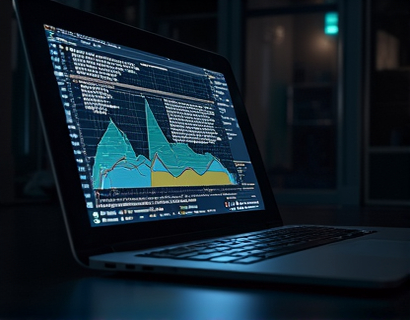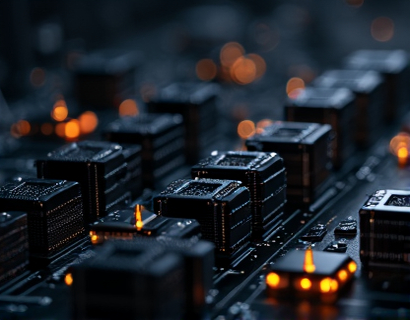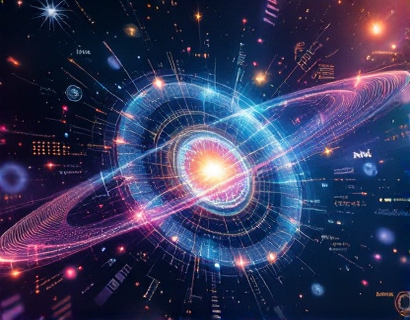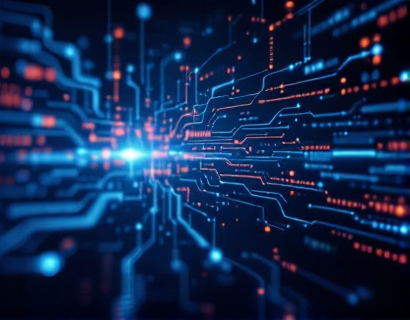AI-Driven Insights for Shooting Sports: Transforming the Way Enthusiasts Connect and Elevate Their Skills
The world of shooting sports has always been one of precision, skill, and community. For enthusiasts, players, and followers, the pursuit of excellence in shooting is not just about personal achievement but also about sharing experiences and learning from one another. In recent years, the integration of artificial intelligence (AI) into various aspects of life has opened new avenues for enhancing traditional hobbies like shooting sports. This article explores how AI-driven insights can transform the shooting sports community by providing personalized guidance, fostering connections, and elevating skills through innovative chat platforms.
Understanding the Role of AI in Shooting Sports
AI technology has made significant strides in recent years, from autonomous vehicles to personalized health recommendations. In the context of shooting sports, AI can analyze vast amounts of data to offer insights that are both precise and personalized. By leveraging machine learning algorithms, AI can process information from various sources such as shooting ranges, training sessions, and user feedback to provide tailored advice. This technology can help shooters identify areas for improvement, optimize their techniques, and track their progress over time.
Personalized Insights for Skill Enhancement
One of the most compelling aspects of AI-driven platforms in shooting sports is the ability to offer personalized insights. Traditional coaching methods often rely on the coach's experience and observation, which, while valuable, may not always account for individual nuances. AI, however, can analyze a shooter's performance data in real-time, identifying patterns and providing immediate feedback. For instance, an AI system can assess a shooter's stance, trigger control, and follow-through, offering specific tips to refine each aspect of their technique. This level of detail and immediacy is unparalleled in conventional coaching methods.
Moreover, AI can adapt to a shooter's learning pace and style. By continuously learning from the user's interactions and performance, the AI can adjust its recommendations to better suit the individual. This personalized approach not only accelerates skill development but also keeps the learning process engaging and motivating. Shooters can receive customized drills and exercises that target their specific weaknesses, ensuring a more efficient and effective training regimen.
Building a Vibrant Community Through AI Chat Platforms
While personalized insights are crucial for individual growth, the shooting sports community thrives on shared experiences and collective learning. An AI-driven chat platform can bridge the gap between solo practice and community engagement, creating a vibrant space where shooters can connect, share, and elevate their skills together. Such a platform can serve multiple purposes, from casual discussions and advice exchanges to organized training sessions and competitions.
Imagine logging into a chat interface where you are greeted by a friendly AI assistant. This assistant can recommend relevant topics based on your interests and recent activities, ensuring that the conversations are always relevant and engaging. Whether you're looking for tips on improving your accuracy, seeking advice on equipment, or simply wanting to share your latest score, the AI can facilitate meaningful interactions. The platform can also suggest connections with other shooters who have similar goals or have achieved milestones that inspire you.
Features of an AI-Driven Shooting Sports Chat Platform
- Personalized Recommendations: The AI can analyze user profiles and chat history to suggest articles, videos, and community members that align with their interests and goals.
- Real-Time Feedback: During live shooting sessions, the AI can provide instant feedback on form and technique, helping shooters make adjustments on the spot.
- Community Events: The platform can organize virtual and in-person events, such as Q&A sessions with experienced shooters, workshops, and friendly competitions, all facilitated by the AI to ensure smooth participation.
- Resource Library: A curated collection of resources, including tutorials, best practice guides, and expert interviews, can be made accessible through the AI, which can recommend content based on the user's learning journey.
These features not only enhance the individual shooting experience but also foster a sense of community and belonging. Shooters can feel supported by a network of like-minded individuals, which is essential for maintaining motivation and enthusiasm.
Fostering Meaningful Connections
The shooting sports community is built on a foundation of shared passion and mutual respect. An AI-driven chat platform can amplify these values by creating opportunities for meaningful connections. The AI can play a pivotal role in facilitating these interactions by analyzing user preferences and behavior to suggest potential friendships or mentorship opportunities.
For example, if a new shooter joins the platform and expresses interest in long-range precision shooting, the AI can identify experienced shooters in the same niche who are open to mentoring or collaborating. This matchmaking process can lead to fruitful relationships where knowledge and skills are exchanged, and friendships are formed. The AI can also monitor these connections to ensure they remain positive and beneficial, providing a safe and supportive environment for all users.
Benefits of AI-Facilitated Connections
- Mentorship Opportunities: Experienced shooters can share their expertise with newer members, helping to accelerate their learning and growth.
- Collaborative Learning: Shooters can engage in group activities and challenges, making the learning process more enjoyable and effective.
- Networking: The platform can help connect shooters with industry professionals, such as equipment manufacturers and range operators, opening up new avenues for learning and resource access.
- Support System: A strong community can provide emotional support and encouragement, which is crucial for overcoming challenges and staying committed to one's goals.
By leveraging AI to facilitate these connections, the platform ensures that the shooting sports community remains vibrant and dynamic, with endless opportunities for growth and collaboration.
Elevating Skills Through Data-Driven Training
Data is the backbone of AI-driven insights, and in shooting sports, data can be incredibly valuable. By collecting and analyzing data from various sources, such as shooting logs, range reports, and biometric feedback, AI can provide a comprehensive view of a shooter's performance. This data can be used to identify trends, track progress, and set realistic goals.
For instance, AI can analyze a shooter's consistency over multiple sessions, highlighting improvements or areas that need attention. It can also compare the shooter's performance against benchmarks or peers, providing a clear picture of where they stand in the community. This data-driven approach not only helps shooters understand their strengths and weaknesses but also motivates them by showcasing their progress over time.
Utilizing Data for Goal Setting
Setting achievable goals is a critical component of skill development. AI can assist in this process by analyzing a shooter's current performance and suggesting realistic, measurable goals. These goals can be short-term, such as improving accuracy by a certain percentage within a month, or long-term, like qualifying for a national competition. The AI can break down these goals into actionable steps, providing a clear roadmap for success.
Moreover, the AI can adjust these goals dynamically based on the shooter's progress, ensuring that the challenges remain appropriate and motivating. This adaptive goal-setting mechanism keeps the training process engaging and focused, helping shooters stay on track and achieve their full potential.
Integration with Existing Shooting Practices
Integrating AI-driven insights into existing shooting practices can be seamless and complementary. Many shooters already use a variety of tools and methods to improve their skills, from range logs to video analysis. An AI chat platform can integrate with these tools, aggregating data and providing a unified interface for insights and feedback.
For example, a shooter can upload their range log to the platform, and the AI can analyze the data to identify patterns and offer tailored advice. Similarly, if a shooter records a video of their shooting form, the AI can use computer vision to provide real-time feedback on technique. This integration not only enhances the effectiveness of existing practices but also introduces a new layer of intelligence and personalization.
Enhancing Video Analysis
Video analysis is a powerful tool for shooters to review and refine their technique. However, manually analyzing video footage can be time-consuming and may miss subtle details. AI can automate and enhance this process by automatically detecting and analyzing key moments in the video, such as the moment of trigger pull or follow-through. The AI can highlight areas of improvement, such as slight misalignments or inconsistent timing, and suggest corrective actions.
Additionally, AI can compare the shooter's performance over multiple videos, tracking progress and identifying areas that have improved or need further attention. This longitudinal analysis provides a comprehensive view of the shooter's development, making it easier to set and achieve long-term goals.
Challenges and Considerations
While the potential benefits of AI-driven insights in shooting sports are significant, it is important to acknowledge and address potential challenges. One key consideration is data privacy and security. Shooters must trust that their personal and performance data is handled with the utmost care and compliance with relevant regulations. Transparent data policies and robust security measures are essential to build and maintain user trust.
Another challenge is ensuring the accuracy and reliability of AI-generated insights. AI systems are only as good as the data they are trained on, and biases or errors in the data can lead to suboptimal recommendations. Continuous monitoring and refinement of the AI models are necessary to maintain high standards of accuracy and usefulness.
Furthermore, while AI can provide valuable insights, it should complement rather than replace human expertise. The role of experienced coaches and mentors remains crucial, and AI should be seen as a tool to enhance their capabilities rather than a replacement.
Conclusion
The integration of AI-driven insights into shooting sports represents a exciting frontier for the community. By offering personalized guidance, fostering meaningful connections, and enhancing training practices, AI has the potential to elevate the shooting experience for enthusiasts, players, and followers alike. As the technology continues to evolve, the shooting sports community can look forward to a future where innovation and tradition coexist, driving the sport to new heights of excellence and enjoyment.










































